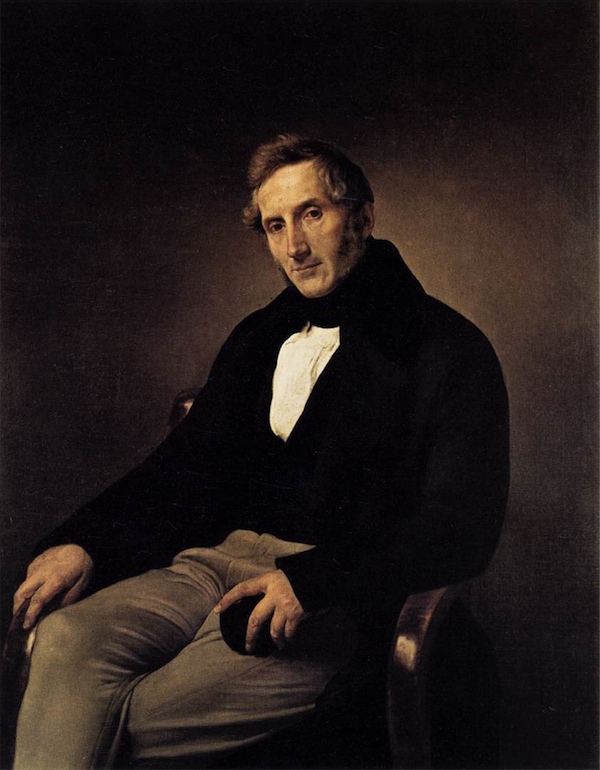
Ma cos’è mai la storia, diceva spesso don Ferrante, senza la politica? Una guida che cammina, cammina, con nessuno dietro che impari la strada, e per conseguenza butta via i suoi passi; come la politica senza la storia è uno che cammina senza guida. C’era dunque ne’ suoi scaffali un palchetto assegnato agli statisti; dove, tra molti di piccola mole, e di fama secondaria, spiccavano il Bodino, il Cavalcanti, il Sansovino, il Paruta, il Boccalini. Due però erano i libri che don Ferrante anteponeva a tutti, e di gran lunga, in questa materia; due che, fino a un certo tempo, fu solito di chiamare i primi, senza mai potersi risolvere a qual de’ due convenisse unicamente quel grado: l’uno, il Principe e i Discorsi del celebre segretario fiorentino; mariolo sì, diceva don Ferrante, ma profondo: l’altro, la Ragion di Stato del non men celebre Giovanni Botero; galantuomo sì, diceva pure, ma acuto.
“But what is history,” said Don Ferrante, frequently, “without politics? – A guide who walks on and on, with no one following to learn the road, and who consequently throws away his steps; as politics without history is one who walks without a guide.” There was therefore a place assigned to statistics on his shelves; where, among many of humbler rank and less renown, appeared, in all their glory, Bedino, Cavalcanti, Sansovino, Paruta, and Boccalini. There were two books, however, which Don Ferrante infinitely preferred above all others on this subject; two which, up to a certain time, he used to call the first, without ever being able to decide to which of the two this rank should exclusively belong: one was the Principe and Discorsi of the celebrated Florentine secretary; “a great rascal, certainly,” said Don Ferrante, “but profound”: the other, the Ragion di Stato of the no less celebrated Giovanni Botero; “an honest man, certainly,” said he again, “but shrewd.”
—Alessandro Manzoni, I promessi sposi cap xxvii (1827)


